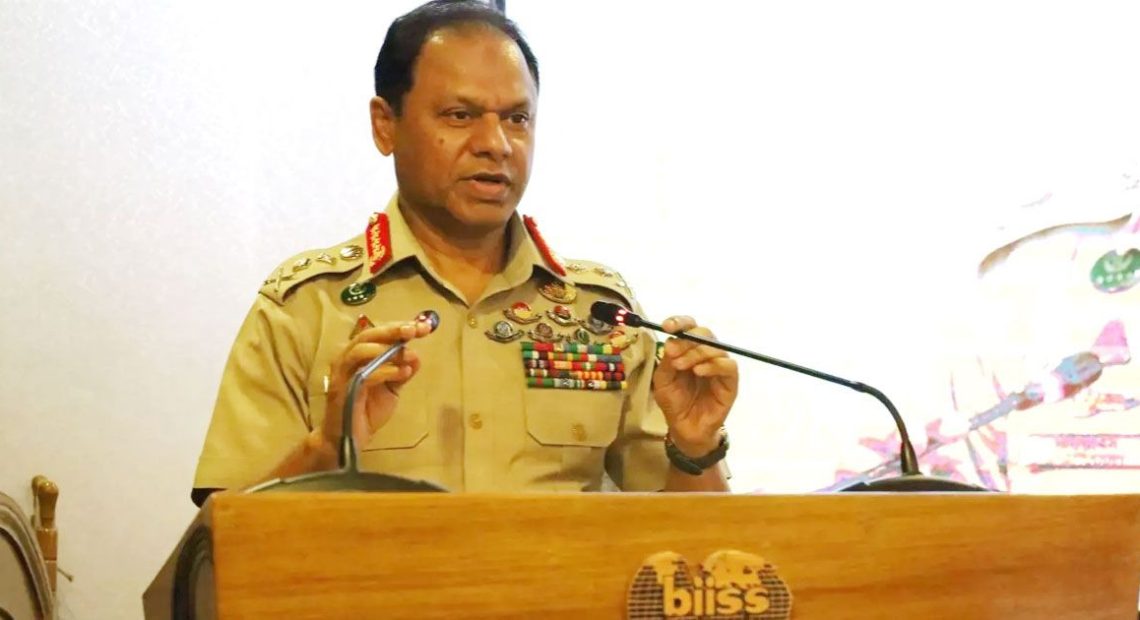Bangladesh Army learns to prevent, not just fight wars, says Army Chief

STAFF REPORTER
At a seminar held in Dhaka, General SM Shafiuddin Ahmed, Chief of the Bangladesh Army, emphasised the dual role of the military in learning to fight as well as preventing conflicts, underscoring a comprehensive approach to national and international security issues.
“The Bangladesh Army does not only learn to fight in wars but also knows how to prevent wars or avoid them in the interest of the nation. We are on the right path and we will not fail in our duties,” General Ahmed stated in his speech as the chief guest at the ‘Defense Diplomacy: Strategy for Bangladesh’ seminar on Thursday at the Bangladesh Institute of International and Strategic Studies (BIISS).
General Ahmed elaborated on the army’s efforts to fulfill the nation’s foreign policy goals and realize the dream of transforming the country into the ‘golden Bengal’ as envisioned by the Father of the Nation, Bangabandhu Sheikh Mujibur Rahman. “The Bangladesh Army is doing everything to contribute to achieving the country’s foreign policy goals,” he asserted.
Highlighting the responsibilities of the army beyond the battlefield, General Ahmed remarked, “Protecting the motherland and the sovereignty of the country is our duty, and we are prepared for it. We are doing everything.”
He referenced Bangabandhu’s guiding principle of “Friendship to all, malice to none,” affirming the army’s dedication to upholding this tenet in its operations. “We are doing everything to implement this foreign policy,” he said.
The Army Chief also spoke about the importance of sustainable economic growth in conjunction with national security and pointed out the army’s role in managing disasters and fulfilling domestic security responsibilities with the support of civilian power.
Discussing the nuances of military diplomacy, General Ahmed highlighted the need for more resources and budget allocations to enhance capabilities, stating, “We know how to do it, but we should have the ability to do so.”
Addressing the sensitive topic of international relations, especially with Myanmar, he noted, “We have contacts with the leadership of Myanmar. But you know, there are sanctions on Myanmar’s senior officials. In such a situation, keeping in touch with them puts us at risk because all countries are our friends. So, we cannot afford to alienate one friend state to please another. We have to consider this reality.”
General Ahmed stressed the collective effort required in government operations, “It cannot be denied that all government agencies work for the interest of the country. Finding opportunities and working in a supportive environment is the best aspect. It is impossible to achieve success alone. How to cooperate with everyone is a big challenge.”
He called for the establishment of an agency to ensure continuity and coordination of government efforts, explaining the challenges of maintaining momentum in governmental projects that transfer between departments.
In his remarks on national capabilities, General Ahmed said, “Some vehicles that can be operated remotely are being made in the country which will be very useful for the Bangladesh Army. Before, these machines had to be imported. So, now we are saving a lot of foreign currency.”
Reaffirming the army’s commitment, he concluded, “The objectives can change overnight, but capabilities do not change overnight. Today you are my friend, tomorrow you may not be. But we must have the capability to protect the national interest, the motherland—this command of foreign policy is the same for everyone.”
The seminar was also addressed by Chief of General Staff (CGS) Lieutenant General Waker-Uz-Zaman, who noted, “Many may have a wrong idea about defense diplomacy, but our diplomats understand the necessity of it very well.”
BIISS Chairman AFM Gousal Azam Sarker added, “Defense diplomacy works within the scope of broad foreign policy.”
BIISS Director General Major General Md Abu Bakar Siddique Khan also spoke at the seminar.














